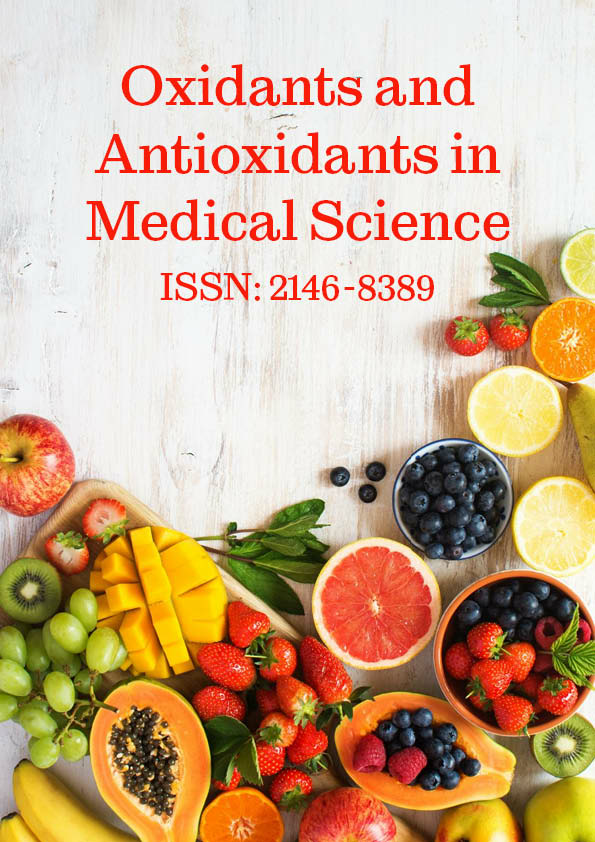Silymarin and naringenin protects nicotine induced oxidative stress in young rats.
Abstract
Anshu Jain, Nidhi Dwivedi, Rakesh Bhargava, Swaran J.S. Flora
Abstract Protective efficacy of silymarin, a flavonoids complex known as ‘milk thistle’ and extracted from the fruit of Silybum marianum (L.) Gaertn. (Carduus marianus L., Asteraceae), and narigenin, a citrus bioflavanoid commonly found in citrus fruits, were studied against nicotine induced hepatic oxidative stress in young rats. Recent studies have shown that silymarin and naringenin possess antioxidant and free radical scavenging properties. Male wistar rats were injected with nicotine hydrogen tartarate (0.75mg/kg, intraperitoneally) and simultaneously given oral treatment with silymarin and naringenin (50 mg/kg each) for 21days to evaluate hepatic damage and antioxidant potential. Our results demonstrate a significant decrease in hepatic glutathione peroxidase (GPx) and glutathione reductase (GR) activities and an increase in glutathione S-transferase (GST) and thiobarbituric acid reactive substances (TBARS) levels on nicotine exposure. A similar trend was observed in blood and brain biochemical variables. Co-supplementation of silymarin or naringenin with nicotine was beneficial in the recovery of altered TBARS levels and GPx, GR and GST activity. Our results thus indicate the antioxidant potential of these flavonoids, which might be of benefit in the clinical recovery of subject exposed to nicotine. We thus recommend that diet rich in flavonoids may be of help in protecting nicotine-induced cytotoxicity. ©
PDF






